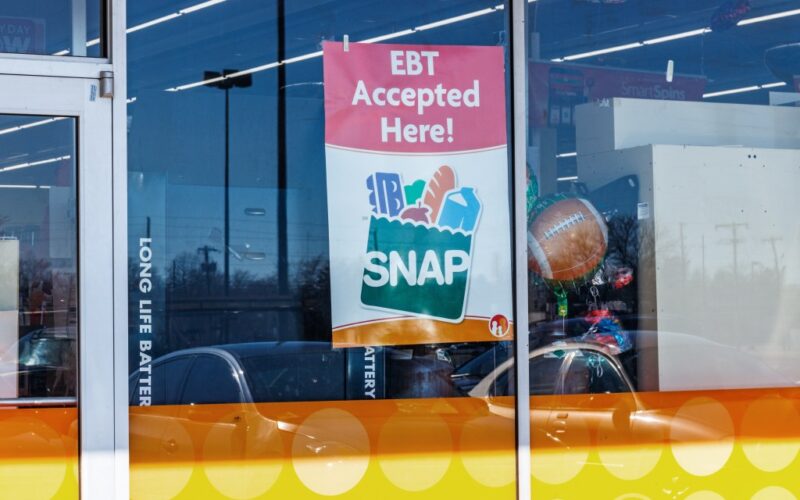For many New Yorkers, a declined credit card at the grocery store is a fleeting inconvenience. But for the people we serve on public assistance, a declined Electronic Benefits Transfer card can mean going without dinner or a child heading to bed hungry. When low-income families or older adults are forced to abandon baskets filled with essentials like milk, bread, and eggs, they’re left scrambling to get through the month.
Thousands of vulnerable New Yorkers — especially older adults — are falling victim to EBT skimming scams each week. Skimming is a fast-growing form of electronic theft that targets households who can least afford the loss. The dollars set aside to help needy people are being stolen.
In recent years, New York City has received nearly 170,000 skimming claims, totaling almost $50 million in reimbursed Supplemental Nutrition Assistance Program (SNAP) benefits. But as of this year, those federal reimbursements have ended — and simple, preventive measures like updating EBT cards with chip technology to prevent fraud and theft still haven’t been implemented.
The impact is devastating for both older adults and families. Families with children face the heartbreak of empty fridges and no immediate way to recover what was lost. At the same time, many older adults face barriers using the current technology — resetting a PIN or locking a card is not easy for someone without a smartphone or with limited English proficiency. We see older adults skipping meals out of fear their benefits have been stolen.
As community-based organizations — Part of the Solution (POTS), JASA (the Jewish Association for Services for the Aged) and the Chinese American Planning Council (CPC) — we are on the frontlines of this crisis. We help residents access benefits, troubleshoot problems, and navigate emergencies. But every skimming case consumes hours of staff time — resources that could be used to prevent hunger or eviction. This growing crisis is undermining trust in the safety net and exhausting community support.
1.8 million New York City residents rely on SNAP to put food on the table, which includes 560,000 children and 530,000 older adults. We see many cases of skimming involving seniors as they struggle to keep up with rapidly changing technology, and seemingly simple actions like locking their EBT card or resetting a PIN can be all too overwhelming.
While the human cost is tremendous and obvious, we must also call attention to the larger implications for the overall safety net and the economic cost to localities nationwide. The USDA estimates that every dollar of SNAP spending generates $1.54, so $1 billion in SNAP dollars spent increases the GDP by $1.54 billion. This means every stolen benefit not only harms a household — it weakens our local economy.
The solution is clear. Chip card technology has been the standard in banking for years because it works. States like California and Oklahoma have already upgraded their EBT systems. In New York, legislation to enable chip-enabled EBT cards — sponsored by Assembly Member Jessica González-Rojas — passed the state Senate on a unanimous bipartisan vote of 53-0 last week and is now before the Assembly.
But it will eventually boil down to political will at the executive level to invest in permanent solutions that can put a stop to skimming. Without action, more families and older adults will continue to lose benefits they depend on.
At the federal level, oversight gaps and expired reimbursement authority have left skimming victims with no recourse. Just this month, the FBI uncovered a $66 million EBT fraud scheme — the largest ever. Yet there is still no coordinated national response.
We urge the New York State Assembly to pass EBT chip card legislation now to protect New Yorkers and Congress to reinstate reimbursements for skimming victims and strengthen safeguards.
This crisis is preventable. But each day of inaction deepens the harm. We will continue to show up — for the families and older adults who rely on us — and keep pressing for the reforms they deserve.
Hanson is executive director of POTS. Levine is senior director of information and case assistance at JASA. Ho is president and CEO of CPC.








